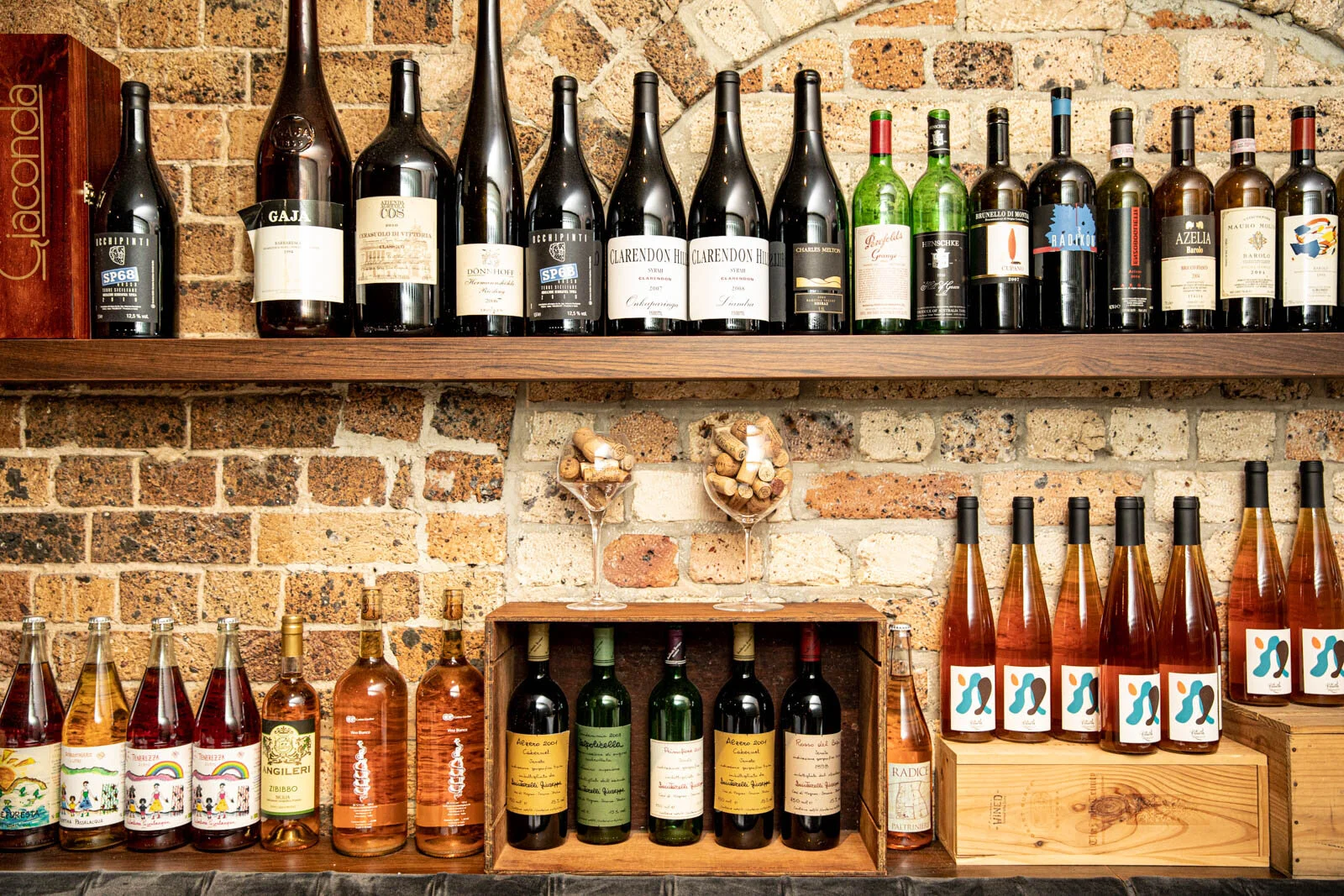Natural wine is a romantic revival of ancient wisdom. The grapes used are not sprayed with pesticides or herbicides.
During the fermentation process the winemakers rely on native yeast, that exists on the grape skins, to set off natural fermentation. And unlike most conventional winemakers, they don’t use any additives. Back to basics as they say.

What is natural wine?
To understand this not-so-new phenomenon, you first need to understand a basic winemaking principle. That is, that the colour in wine comes from the skin of the grape. The more time you keep the grape juice in contact with the skins during fermentation, the greater effect it will have on the colour and above all flavour of the wine.
While grapes for conventional white wines are fermented without their skins, orange/amber wine is made in the same way as red wine — with the grape skins intact (or with 'skin contact') during fermentation. Hence the terms ‘orange’ and ‘skin contact’ wines.
Can you explain biodynamic wine to me?
Biodynamic wine is made with a set of farming practices that views the farm or vineyard as one solid organism. The ecosystem functions as a whole, with each portion of the farm or vineyard contributing to the next. The idea is to create a self-sustaining system.
Natural materials, soils, and composts are used to sustain the vineyard. Chemical fertilisers and pesticides are forbidden for the sake of soil fertility. A range of animals from ducks to horses to sheep live on the soil and fertilise it, creating a rich, fertile environment for the vines to grow in. Biodynamic farming also seeks sustainability, or leaving the land in as good or better shape as they found it for future generations.
Biodynamics is the oldest, anti-chemical agricultural movement that predates the creation of organic farming by about twenty years!


Why is everyone talking about it?
Natural wines can trigger heated debate within the wine world, with strong advocates and nay-sayers on either side. One thing’s for certain, natural wine is here to stay. So what makes these wines noteworthy?
The ageing with the skins draws out additional tannin, so the wines can often have a bit of grip or a touch of bitterness to them. The flavour profile can also tend towards a riper, more tropical kind of spectrum (depending on the grape variety of course), but it's common to see flavours and aromas of peach, apricot and pineapple, as well as orange blossom, beeswax and honey. They often have a slight saltiness to them, which works to further enhance their food-friendliness.
Natural wines also use far less sulfites than conventional wines. With less preservatives, you’re looking at less hangovers as well. Huzzah!
Where do we stand?
As co-owner Julian Izzillo says, “Natural winemaking has become a movement similar that to a revolution, a nemesis to the industrialisation of wine in the past few decades. These winemakers have also pushed generic international grape varieties to the side and instead preferring to use indigenous and almost forgotten varietals with a focus on the concept of terroir – ‘a taste of place.’”
Natural winemaking is increasingly popular, but De Vine Food & Wine have been sourcing natural wines for over a decade. In fact, in a list of 400 wines at De Vine, 250 of them are natural and made with minimal intervention. An astounding 90% are farmed organically or biodynamically.
So if you’re looking to see what all the fuss is about, there’s no better place than De Vine Food & Wine.



